Towards Sustainability through Development: A Regional Dialogue in the 3rd International Symposium on Disaster Resilience and Sustainable Development (DRSD 2023)
Experts, practitioners, policymakers, and students from multi sectoral and multidisciplinary backgrounds gathered to engage in a regional dialogue and academic exhibition regarding disaster resilience and sustainable development in Asia Pacific and beyond. Their participation was part of the 3rd International Symposium on Disaster Resilience and Sustainable Development (DRSD 2023), a biannual event organized by Asian Institute of Technology with great support from institutional partners.
The 2-day Symposium took place on 7th and 8th December 2023 in AIT Conference Center, Pathumthani, Thailand. Over 220 participants from 25 countries attended the Symposium. The diverse participants represented different sectors, such as academic institutions, national and international nongovernmental organizations, national and subnational government agencies, multilateral banks, and the private sector.
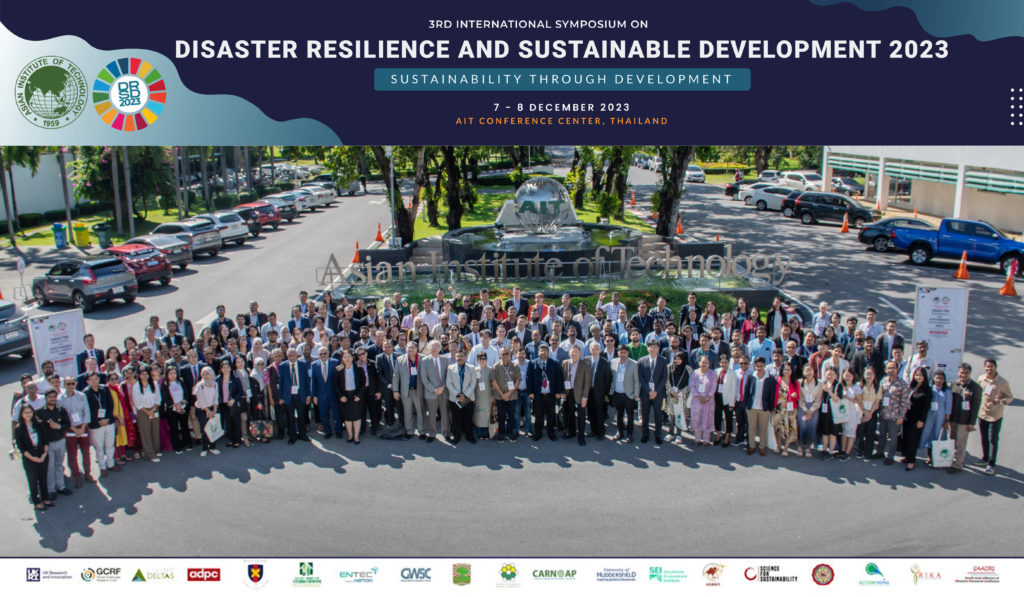
The Symposium achieved its aims of diverse academic exhibitions and established discourse on key issues related to DRR and sustainable development.
The Symposium was formally opened on 7 December 2023 by AIT President, Prof. Kazuo Yamamoto and the Chair of the DRSD 2023 Organizing Committee, Dr. Indrajit Pal. Prof. Yamamoto stressed the important correlation between disaster resilience and sustainable development goals. AIT’s work in promoting SDGs has been recognized widely and this Symposium was key to sustaining that work further.
Dr. Pal, who is also Chair and Assoc. Prof of Disaster Preparedness, Mitigation and Management (DPMM) Program, highlighted the positive response from the DRR community in Asia Pacific and beyond; and further encouraged the importance of collaborating together to achieve sustainability through development.
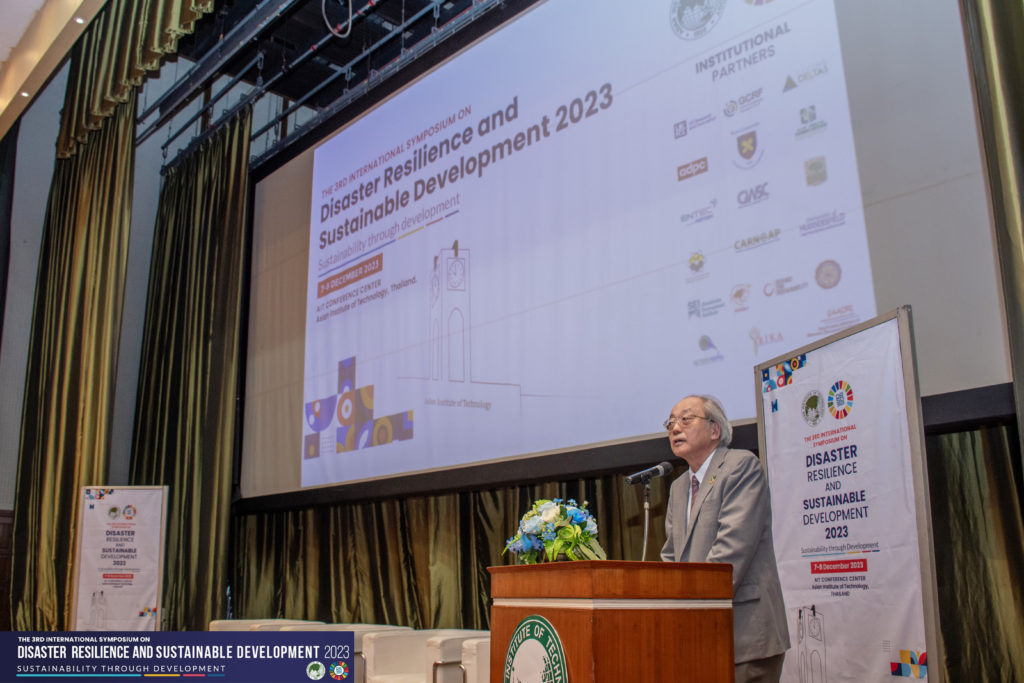

After the opening session, opening keynote speeches were delivered by two renowned personalities Dr. Sanjay Srivastava from UN-ESCAP and Dr. Bhichit Rattakul from Thai Network for Disaster Resilience (TNDR). Throughout the two days, five international experts delivered keynote speeches on the topics of The Living Deltas Hub, sponge city and urban flood resilience, building international scientific collaboration for disaster management, and infrastructure resilience from climate hazards.
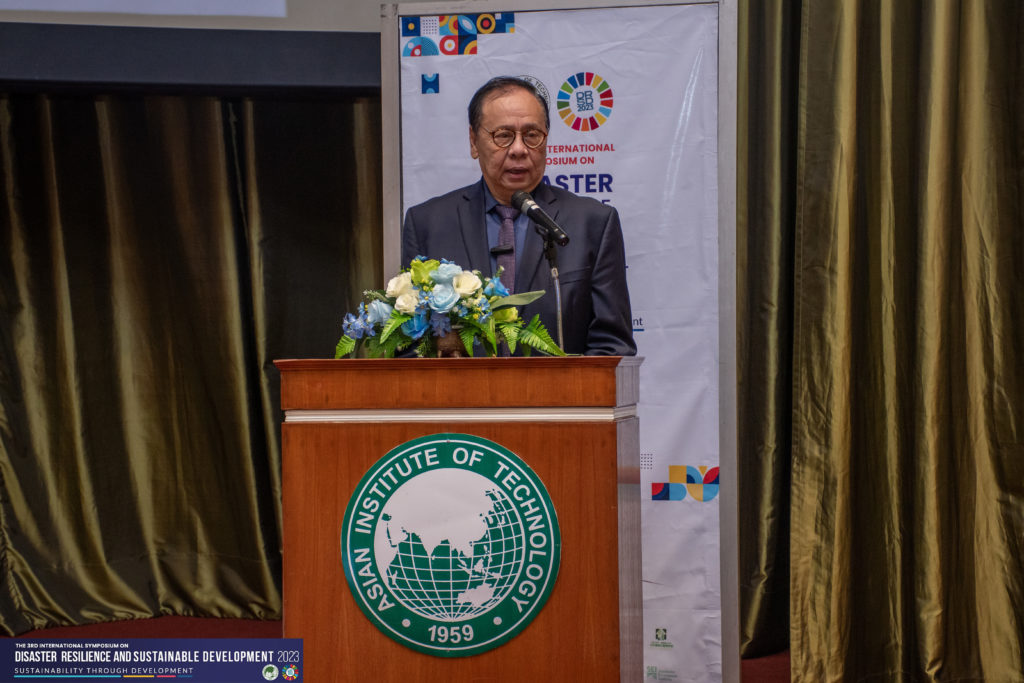
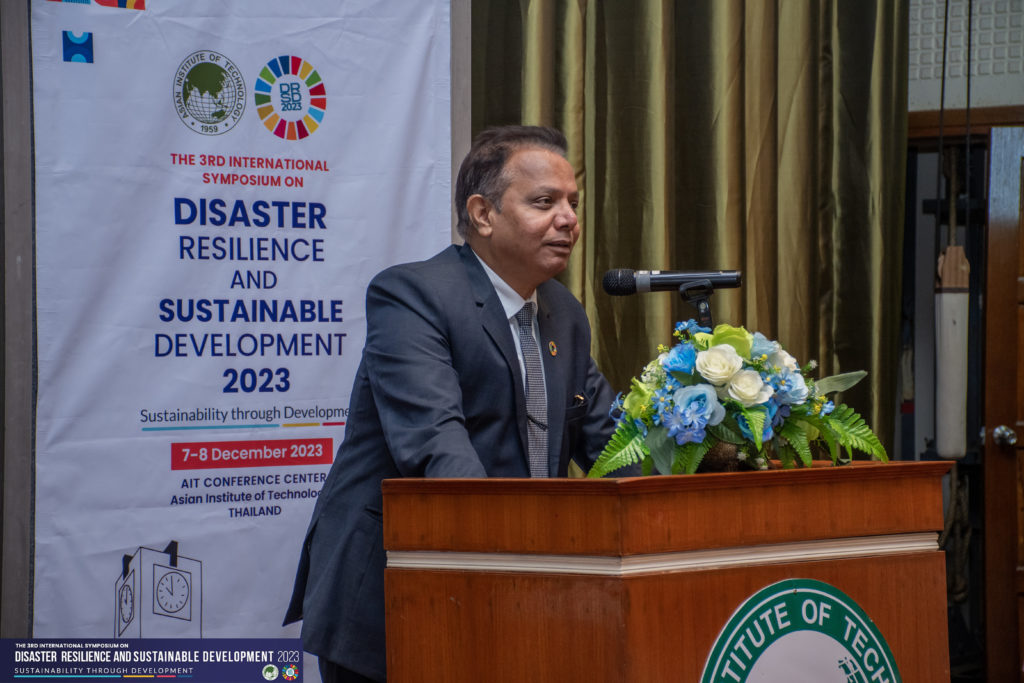
The Symposium facilitated in-depth, multi-sectoral dialogue through four panel discussion sessions on the topics of water supply and sanitation resilience during emergencies; strengthening critical infrastructure resilience to disasters and climate change; disaster and climate resilience in deltaic and coastal systems; and enhancing regional collaboration among Global South countries to promote research into risk and resilience. Participants witnessed and benefited from the experiences and insights shared by the panel members and ensuing Q&A.
Over 150 participants representing over 70 institutions and 25 countries conducted technical presentations in the form of oral and poster presentations to reflect state-of-the-art interdisciplinary knowledge on DRR in Asia Pacific and beyond. In total, there were 126 oral presentations and 24 poster presentations presented in the Thematic Sessions under distinct themes:
1. Climate Change, Risk Reduction, and Adaptation;
2. Remote Sensing and ICT Applications for Disaster Resilience;
3. Risk Reduction, Governance and Development,
4. Resilience of Urban, Built Environment, and Infrastructure,
5. Disaster and Climate Resilience in Coastal, Marine, and Deltaic Systems, and
6. Strengthening Ecological and Natural Systems for Disaster Resilience.
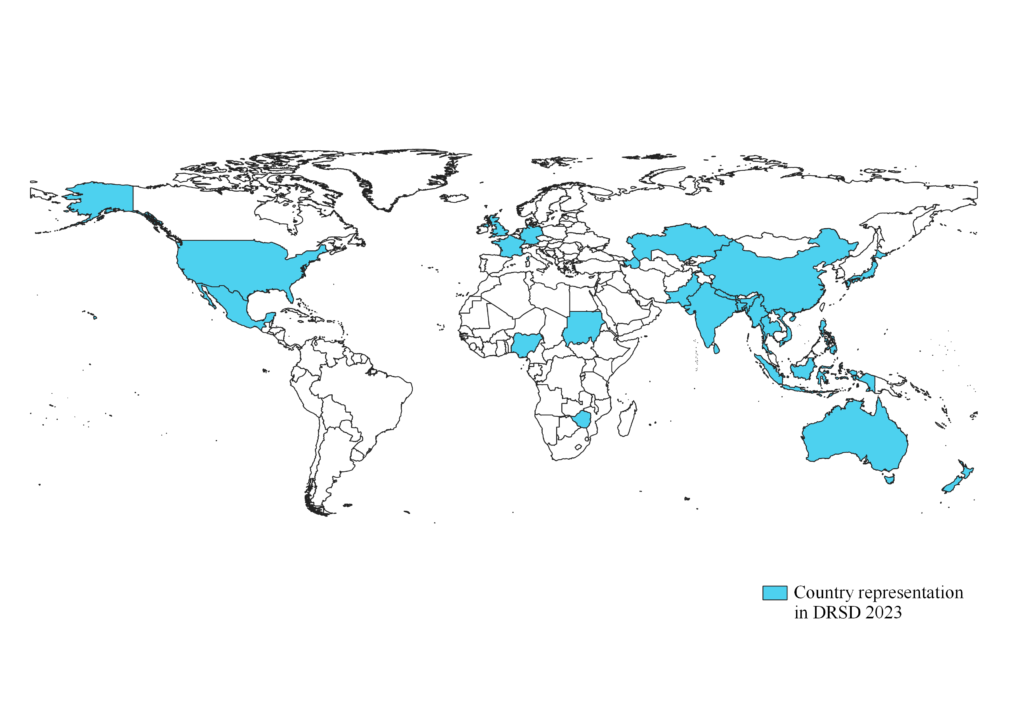
The Symposium was officially closed on 8 December 2023 by Dr. Roger Levermore, Dean of AIT School of Management and Vice President for Development, and Dr. Indrajit Pal. Dr. Roger extended his appreciation to all participants and partners for their support and highlighted the need to further strengthen collaborations. The DRSD 2023 Symposium concluded with remarks from Dr. Indrajit Pal on the regional multi-stakeholder collaboration, especially higher education institutes towards the sustainable and disaster resilient community.
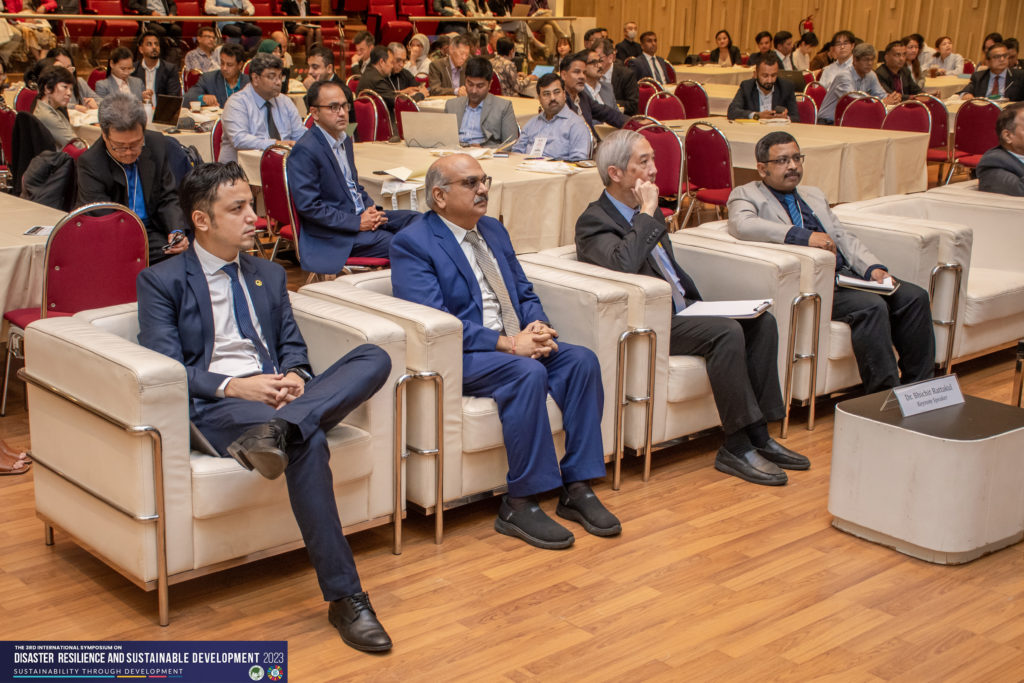
0 Comments